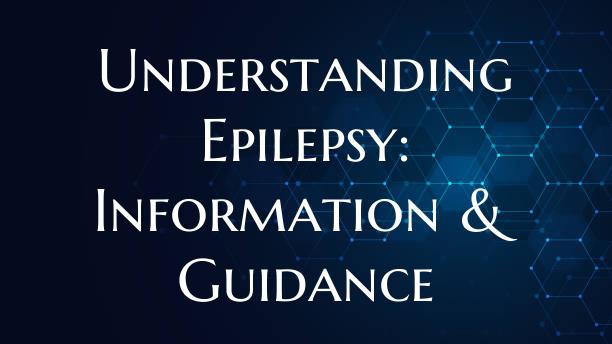
Understanding Epilepsy: Information & Guidance
Understanding Epilepsy: Information & Guidance
Epilepsy is a neurological disorder that affects the brain and causes recurring seizures. It can have a significant impact on a person's life, but with understanding and proper management, individuals with epilepsy can lead fulfilling lives. Here is some information and guidance to help you understand epilepsy better:
1. What is Epilepsy? Epilepsy is a chronic disorder characterized by unpredictable seizures. These seizures are caused by abnormal electrical activity in the brain, leading to temporary disturbances in behavior, movement, sensation, or awareness. Epilepsy can develop at any age and may be caused by various factors, including genetics, brain injury, infections, or other medical conditions.
2. Types of Seizures There are different types of seizures that can manifest in people with epilepsy. These include focal seizures (originating from a specific part of the brain) and generalized seizures (affecting both sides of the brain). Seizures can vary in intensity and duration, and their effects may range from mild to severe.
3. Treatment Options While epilepsy cannot be cured, it can be managed effectively with medication, lifestyle modifications, and in some cases, surgery. Antiepileptic drugs are commonly prescribed to control seizures and improve quality of life for individuals with epilepsy. It is essential for individuals with epilepsy to work closely with healthcare professionals to find the most suitable treatment plan.
4. Lifestyle Considerations Living with epilepsy may require certain lifestyle adjustments to minimize triggers and risks. Maintaining a regular sleep schedule, managing stress, avoiding alcohol and recreational drugs, and staying compliant with medication are crucial factors in managing epilepsy effectively. It is also important to educate family members, friends, and colleagues about epilepsy to create a supportive environment.
5. Seizure First Aid Knowing how to respond to someone experiencing a seizure can be critical in ensuring their safety. During a seizure, it is important to stay calm, protect the person from injury by moving objects out of the way, cushion their head, and stay with them until the seizure ends. Avoid restraining the person or putting objects in their mouth. If the seizure lasts longer than five minutes or is followed by another seizure, seek medical help immediately.
6. Support and Resources Living with epilepsy can be challenging, but there are numerous resources and support networks available to help individuals cope with the condition. Support groups, online forums, educational materials, and advocacy organizations can provide valuable information, guidance, and emotional support for those affected by epilepsy.
In conclusion, understanding epilepsy is key to supporting individuals living with this condition. By educating oneself, promoting awareness, and fostering a supportive community, we can help individuals with epilepsy lead fulfilling and empowered lives. Remember, epilepsy does not define a person – it is just one aspect of who they are.